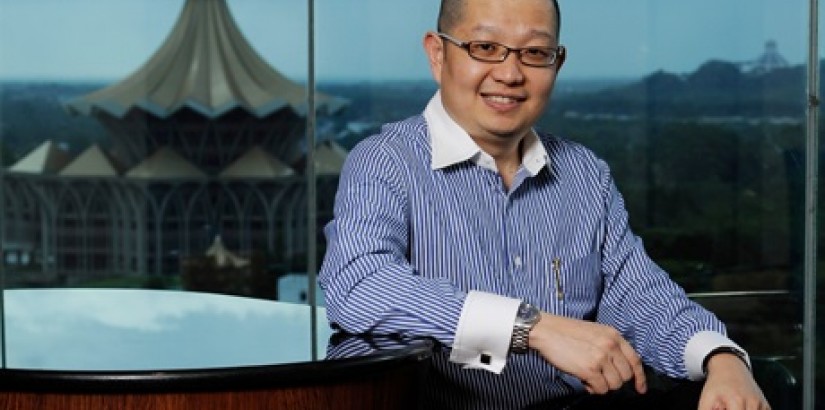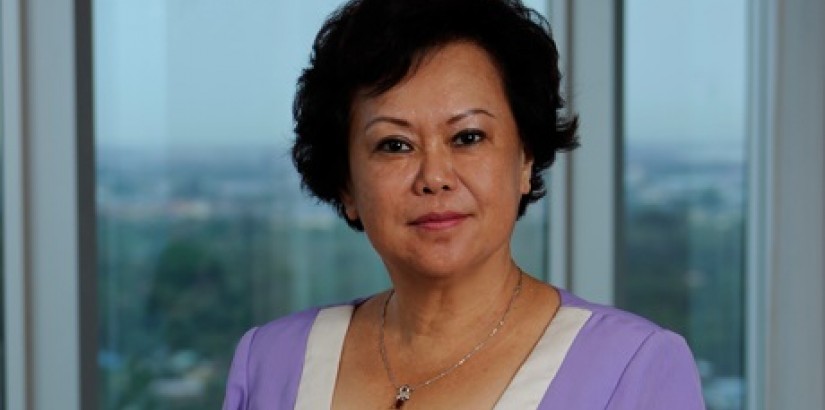2012
1 MayGLOWING ENDORSEMENTS: UCSI University spearheads efforts to reshape the domestic tourism and hospitality industry
Kuching, May, 2012 - As the fifth largest industry in the national economy, the tourism and hospitality sector is expected to play a major role in Malaysia's drive to become a high income nation. Having recorded steady growth rates over the past decade – at an average of 14% per annum – the sector is expected to grow threefold by 2020. Translated into numbers, we are looking at 36mil tourist arrivals and RM168bil in tourist receipts by then – a RM3bil contribution each week to the national economy.
Despite the many positives, the industry's projected growth trajectory also poses a human capital challenge for Malaysia. An estimated 500,000 skilled workers must be trained to meet the estimated growth and existing personnel need to be upskilled. The Malaysian Centre for Tourism and Hospitality Education (MyCenTHE) was established to address these needs. With the aim to produce 50,000 graduates annually by 2020, MyCenTHE's efforts pass as a watershed and its launch in 2010 was greeted with much publicity.
Led by UCSI University, MyCenTHE's initial clusters in Sarawak and Kuala Lumpur have already generated some buzz.The Sarawak cluster – home to more than 200 students – in particular, has already impacted the state's tourism and hospitality industry. This was gathered from a recent round of feedback with industrial partners and Riverside Majestic Hotel manager Patrick Lau was among those who waxed lyrical about the quality of UCSI University students. "In general, I received very good comments from various department heads and they are satisfied with these students in terms of their commitment, knowledge, personality and performance," he enthused.
"UCSI University's work-based learning (WBL) model is practical – particularly in the hotel industry as the process of learning is real-time and this enables students to understand the actual scenario better; as compared to conventional theoretical approaches. With proper guidance and understanding on how the WBL model functions, these students will contribute greatly to our operations."
Similar sentiments were gathered from Susan Kon, the talent development manager of the Grand Margherita Hotel and the Riverside Majestic Hotel. Describing the WBL model as "great", Kon talked on the qualities of the first batch of WBL students. "We have seen that they have the basic skills and knowledge to do the job," she said. "They were able to communicate confidently and showed great passion in everything they do.
Praising the quality of training provided at UCSI University, Kon pointed out that most students were prepared for the work environment at the hotels. The students' resilience and versatility, she opined, set them apart and they adapted well to the fast paced nature of work and the requests of demanding guests. Going further,Kon spoke well of WBL's impact on the industry.
"With WBL, we will be able to provide professional human resources and services for the industry; upgrading the service quality and maximising the guest experience while maximising financial returns," she mused. "I do believe that WBL graduates will enjoy better job opportunities as the practical aspects of their modules are based on the industry's needs."
In essence, UCSI University's WBL approach balances practical emphasis with traditional academic grounding. Designed to provide unparalleled workplace exposure to students, an archetypical two-year WBL diploma sees students obtaining up to 11 months of workplace experience, allowing them to earn as they learn. This, by itself, puts run-of-the-mill internship programmes in the shade.
It is worth noting that UCSI University's WBL curriculum is being used as a benchmark at all MyCenTHE clusters. The efficacy of the approach is further exemplified by strategic partnerships that provide myriad opportunities to students. Under such tie-ups, students hone their craft at hotels and resorts, exposing themselves to fundamental industrial practices. This exposure counts as work experience, allowing students to obtain a headstart over their peers when they graduate. Delving deeper, industrial players will enjoy first option when it comes to hiring graduates, making the tie-up an effective two-way process.
This unique offering was designed to support the nationwide initiative to make the industry a preferred career option for students. The implementation of a synchronised curriculum is a major step in this direction and the Government is hoping that at least 50% of industry personnel will possess a diploma-level qualification – at the very least – by 2020. Presently, the industrial average hovers around the 16% mark.
Despite the disparity, the statistics looks set to rise with upcoming MyCenTHE cluster launches in Penang, Johor, Sabah and Terengganu and more launches will follow until national coverage is achieved. Involving most of Malaysia's premier higher education providers, MyCenTHE's offerings focuses on accessibility and all institutions involved have agreed to reduce their course fees by up to 30% to enhance accessibility to higher education in the field. And by leading the consortium, UCSI University is truly making its mark on the nation.
Enrolment for the WBL Diploma programmes at UCSI University is now in progress. Students and parents are invited to visit the University's Open Days this coming weekend, at its Sarawak Campus located at JalanTun Jugah in Kuching. The University's doors will be open from 10am to 5pm on both days. For more information on the WBL Diploma programmes, please contact the course counsellor at 082-455 255 or email [email protected].








